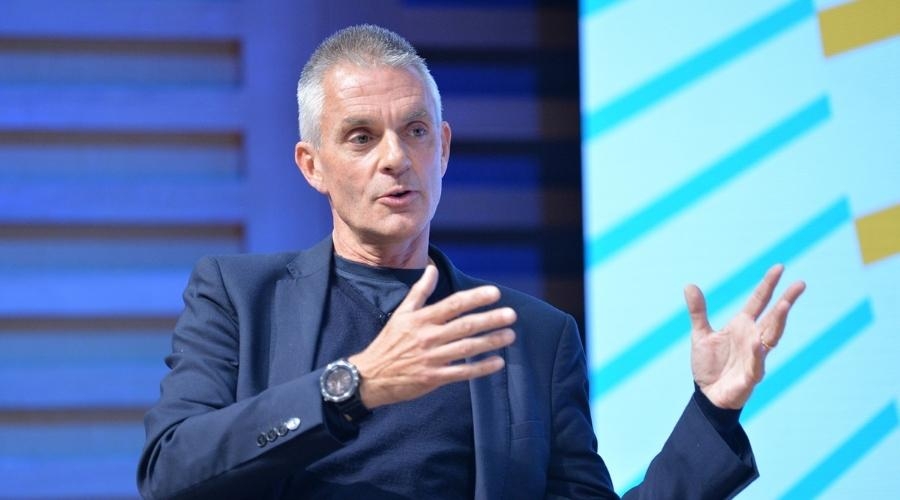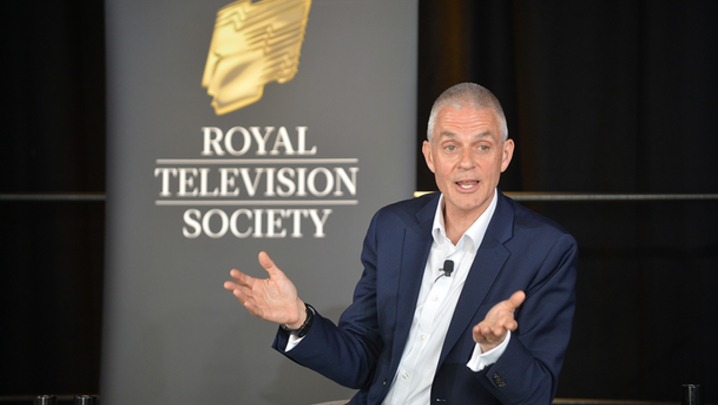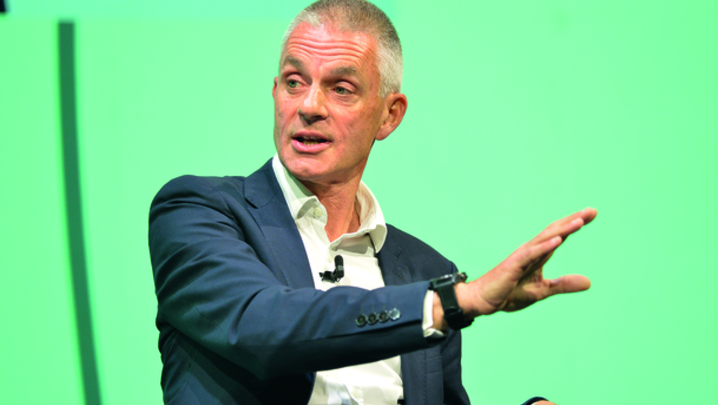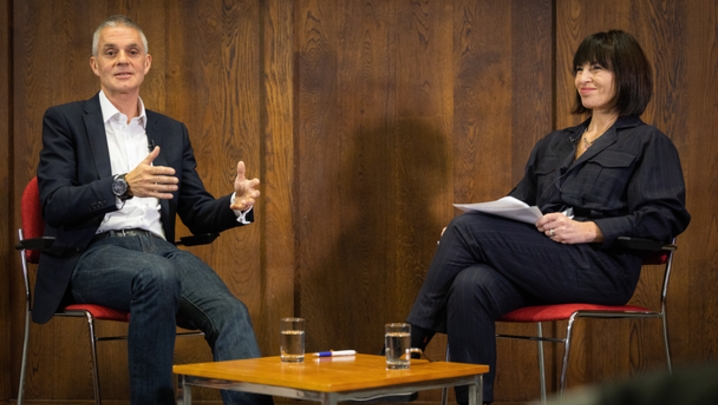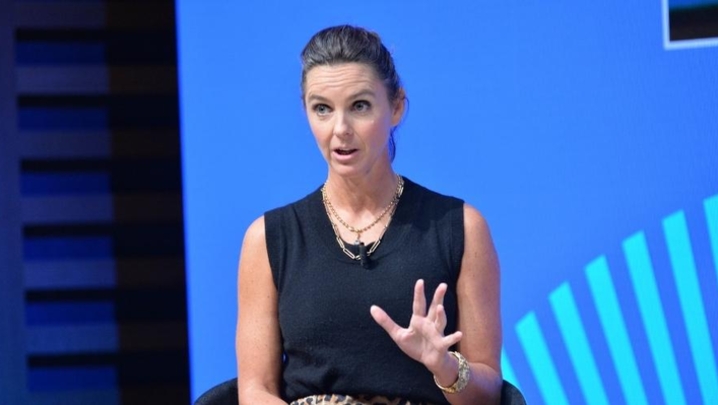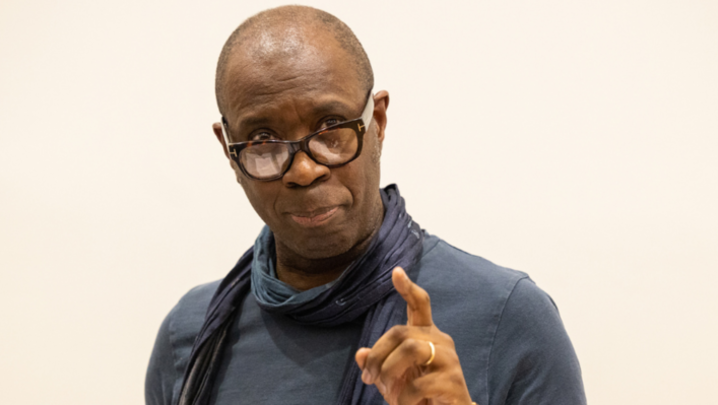The BBC’s Director-General identifies the key challenges of funding, political impartiality and social exclusion
Session chair Amol Rajan: Is the licence fee the least bad option for funding the BBC?
Tim Davie: Yes…. If you believe in universal broadcasting… the licence fee, for all its problems, [has] enabled a few things: the BBC has been able to keep [to] its mission, it’s kept us independent [and] impartial; and it provides a certainty of funding in the medium term….
[It’s also] worked in terms of the UK creative industries and public service broadcasting…. One of the things that I think we all need to do is to get out and have a look at what’s happening in media around the world.
Are you able to get young people to pay for the licence fee in sufficient numbers to ward off the argument that the licence fee is no longer universal?
There’s no doubt that we can deliver the vast majority of households paying for a licence fee because they get good value from it…. We took more in licence-fee income last year than we did the year before – by £50m…. The idea that there’s some sort of major short-term crisis is nonsense – we still get 88% of adults using the BBC every week.
You got £3.8bn from the licence fee last year; that’s 74% of BBC income. In the years ahead, will the proportion of funding that comes from the licence fee fall as commercial revenues grow?
Globally, without a doubt… but you’re never going to be in a position where the commercial revenues in the UK offset a massive amount of the [licence fee]…. The commercial arm, we’ve grown… from £1bn revenue to £1.6bn… the profit on the back of that is a decent margin… but to subsidise and take over from the licence fee? Do the maths, as they say.
Are you currently looking at [any] potential closures of services or channels as a response to the budgetary pressure you are under?
We’re always looking at it.
What are you looking at now?
I’m not going to tell you.
Let’s go through a few of them…. Is Newsnight value for money?
Absolutely, the return on investment in proper current affairs is [at] the heart of the BBC.… Overall, I think the Newsnight journalism is value for money.
Is the World Service, which relies partly on the licence fee, going to take a bad hit?
It’s a service that’s growing; it’s outstanding value for money…. We currently spend between £250m and £300m of UK licence-fee payers’ money on [World Service] language services. I think there is a question of who funds that, with the Foreign, Commonwealth & Development Office currently putting in money. That balance is something I do think we should be looking at over time.… I think there’s a huge opportunity to keep growing the World Service; it’s just: who funds it? [Two days after Davie spoke, the BBC announced almost 400 job losses in the World Service’s foreign-language services.]
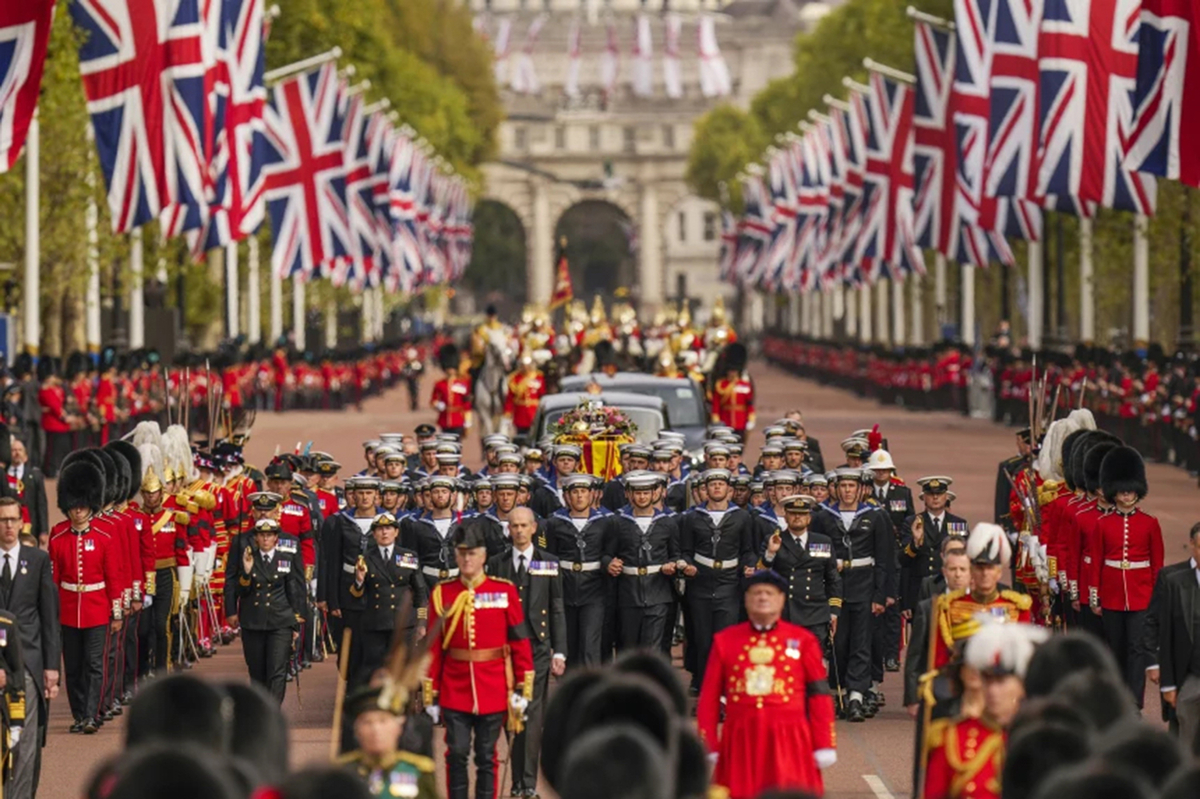
Isn’t one of the problems with this industry at the moment that the old business models throw off a lot of cash but they don’t grow very much?
Perfectly put… the issue for all of us is how do you manage that transition [from linear to digital] without two things happening. One is you become too small; you lack scale and focus…. The other thing is how do you invest capital at such a level that you can succeed, while navigating that change and keeping hold of your current businesses – we’re all in it; the BBC’s no different.
What were your priorities [in covering the death of Queen Elizabeth II]?
There are broadly three things you’ve got to get right: the announcement…and that really is about flawless rehearsal… the second thing is what I call clutch control during an event like that and, finally, getting the ceremonials right and beautiful….
We had enormous decisions to make, do you put on Strictly, do you do satire?… I think the Last Night of the Proms was the most finely balanced [decision]… we were worried about broadcast trucks because… we had an enormous amount of ceremonials to cover, so I think that was a 50-50 call. I think we probably made the right decision [to cancel], but you could debate it either way.
Why have you made class the focus of your work on diversity?
I absolutely believe that good intent is not enough… We’re full of good intent, we’re full of initiatives and people wanting to make it work.
The only way I’ve seen it really work is when you change the nature of an organisation itself… I’m a big believer in targets; I don’t think you should work at the BBC and earn decent money unless you’re accountable….
We are one of the only organisations in the UK that has gone with a formally declared socio-economic diversity target…. In any organisation “group think” is an issue; I also think it’s unfair; people should have opportunities.
We commissioned some original research in BBC current affairs on accent bias, and we found that, across the four main broadcasters – the BBC, Sky, ITV and Channel 4 – 70% of newsreaders spoke in the poshest accent [RP]… and that compares with just 10% of the population. Does that finding surprise you?
Not particularly. I’m beginning to do something about it.
Would you consider giving a big network presenting job to someone with a strong regional working-class accent?
Of course… I’ve pushed £700m in spending across the UK, outside the M25 – it’s changing the BBC.
How has [BBC Board member and Theresa May’s former communications director Sir] Robbie Gibb improved the BBC’s impartiality?
He’s one of a very high-quality board… Frankly, there’s a lot of nonsense talked about this… we absolutely are fighting for fair, balanced output, with due impartiality.
We should not know how [political editor of BBC News] Chris Mason or you vote – when you come to the BBC, you leave that at the door. Now, we do take board members [from] all kinds of backgrounds, some of them have baggage. They have views… but they don’t shape the output, they don’t make the editorial calls. We do.
Are you concerned that so many presenters are leaving the BBC?
About 3% of our presenters [have] left voluntarily… but part of what we do at the BBC is grow talent…. We’ll always have a bit of renewal; we didn’t look like we had a weak squad in our coverage of the Queen’s [death]…. There will be people moving in and out of the BBC– there always has been, it’s a hyper-competitive market…
We’ve had a couple of [journalists] say, “I want to go and have my voice and share my views somewhere else”, and [that’s] no problem.
In Session Five, ‘UK keynote: Tim Davie’, the BBC Director-General was in conversation with BBC journalist Amol Rajan. The producer was Sue Robertson. Report by Matthew Bell.

